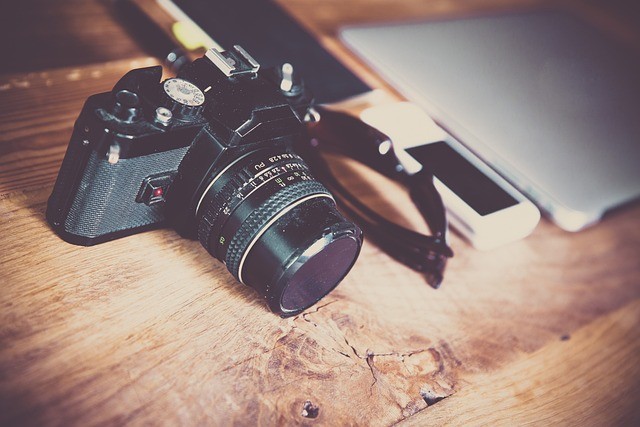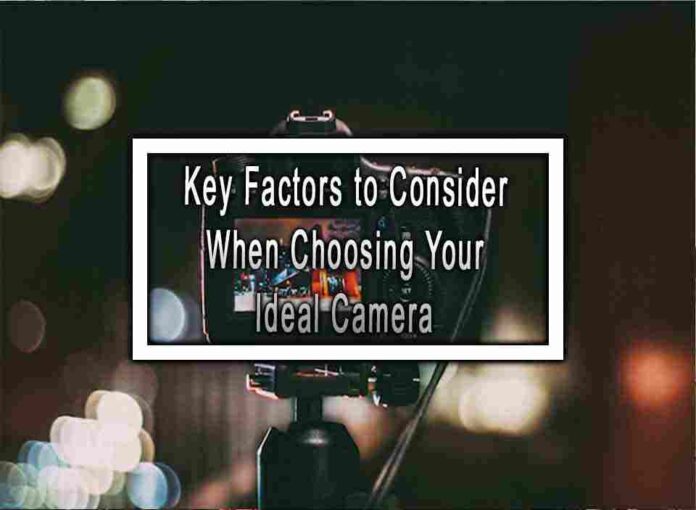When choosing an ideal camera, several key factors should be considered based on your specific needs and preferences. Here are some important factors to consider:
1. Camera Type
Determine the type of camera that suits your requirements. Common options include DSLR (Digital Single Lens Reflex), mirrorless, point-and-shoot, and action cameras. Each type has its advantages and limitations, so choose one that aligns with your photography goals and level of expertise.

2. Image Quality
Assess the image quality produced by the camera. Factors such as sensor size, resolution (measured in megapixels), dynamic range, and low-light performance can significantly impact the quality of your photos. Consider the type of photography you’ll be doing and choose a camera with appropriate image quality.
3. Lens Options
Evaluate the lens ecosystem available for the camera system you’re considering. The variety and availability of lenses can expand your creative possibilities. Different lenses are designed for specific purposes, such as wide-angle, telephoto, macro, or prime lenses. Consider the range of lenses you may need for your photography interests.
4. User Interface and Controls
Ensure that the camera’s user interface and controls are intuitive and user-friendly. Test out the camera in person if possible to assess how comfortable you are navigating the menus, accessing settings, and adjusting controls. A camera that feels comfortable and allows for easy control will enhance your shooting experience.
5. Size and Portability
Consider the size and portability of the camera, especially if you plan to travel or shoot on the go. Smaller and lightweight cameras are more convenient to carry and handle, while larger cameras may offer additional features and better ergonomics. Find a balance between portability and functionality based on your specific needs.
6. Connectivity and Sharing Features
Check the camera’s connectivity options for transferring and sharing photos. Look for built-in Wi-Fi, Bluetooth, or NFC capabilities, which allow you to easily transfer images to your smartphone or tablet for quick sharing on social media platforms.
7. Video Capabilities
If video recording is important to you, consider the camera’s video features. Look for options such as high-resolution recording, frame rates, autofocus performance during video, and external microphone inputs. The camera’s video capabilities should align with your intended use and quality requirements.
8. Battery Life and Accessories
Assess the camera’s battery life and availability of additional accessories, such as spare batteries and compatible accessories like flashes, external monitors, or tripods. A camera with good battery life and a wide range of accessories can enhance your shooting flexibility.
9. Budget
Determine your budget for the camera and associated gear. Cameras come in a wide range of prices, so consider your budget and invest in the best camera and lenses within your means. Remember to consider additional costs for accessories, memory cards, and other essentials.
10. Reviews and Recommendations
Read reviews and seek recommendations from reputable sources or photographers who have experience with the camera models you’re considering. Their insights and experiences can provide valuable information and help you make an informed decision.
Ultimately, choosing the ideal camera depends on your specific needs, preferences, and intended use. Consider these factors and prioritize the ones that align with your photography goals to find a camera that suits you best.











